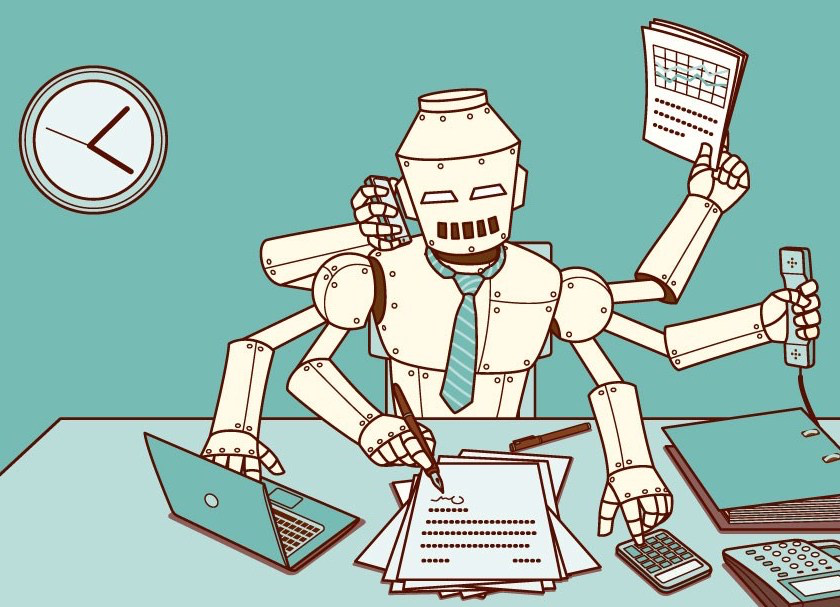Will Robots and Technology Replace You?
September 30, 2020
As the Autonomous Robotics Club president on campus and a robotics teacher at the local high school, I get asked one question quite often. “Do you think robots will replace us?” The initial reaction to such a question is often laughter. How can there be such a concern that an advanced species like humans could fall to their basic creation, something so trivial that they can be defeated by unplugging it? This fear is not entirely unfounded, however. The creation of robots was intended to do trivial repeatable tasks and make up for the weaknesses humans have.
Through movies and books, the same plot has been seen over and over. Robots are taking over the world. That is the significant fear factor that draws a crowd and starts to formulate those ideas that your Roomba could turn against you. The idea that robots are going to take over the world is quite ridiculous. Nevertheless, even though robots will not take over the world like most people are concerned about, they will take a larger role in society. As society advances and technology gets better, robots will begin to replace low paying trivial jobs and slowly creep into the service and food industries. A task obliged to be repeated or a recipe needed to be followed, in theory, can be done better by a robot.
The trajectory of robot development can be seen very easily by looking at how far we have come. Initially, robots started as computers, a program used to help us do numerous calculations that a human would take months, but a computer can do in seconds. With a motor’s addition, robots could perform simple tasks like moving, interacting, and manipulating items. With that advancement, robots crept into logistics and shipping industries and factory work. They will soon help drive cars because robots are predictable, do exactly as expected, and predictability will help prevent accidents when driving. The trends make sense, there is always a reason, and for companies, they are great. Instead of paying four workers to make something, you can build four robots and hire one person to maintain them.
With time, yes, robots will replace specific jobs, but one of the best features we have as humans is our ability to acclimate to change. That is why humans can go from living in the coldest places to the warmest places by making a few apparel changes. The ability to make adjustments and survive is why our average life expectancy has increased so much. Diseases that would once have killed us are easily cured with a little pill you can buy for $5 at your local CVS. That ability to adapt is why robots won’t replace humans, but instead, we will use them as tools as we transition to different jobs.
Robots will take away a lot of service or trivial jobs and provide work in creating and maintaining those robots. That is not all, however. Doing work so much faster will allow us more free time as a community, and the entertainment industry will grow to help fill the extra time. This growth will be able to provide jobs for the people that have been replaced by robots. Ultimately the new technology will allow for a more efficient and analytical approach to how we live our everyday lives.










